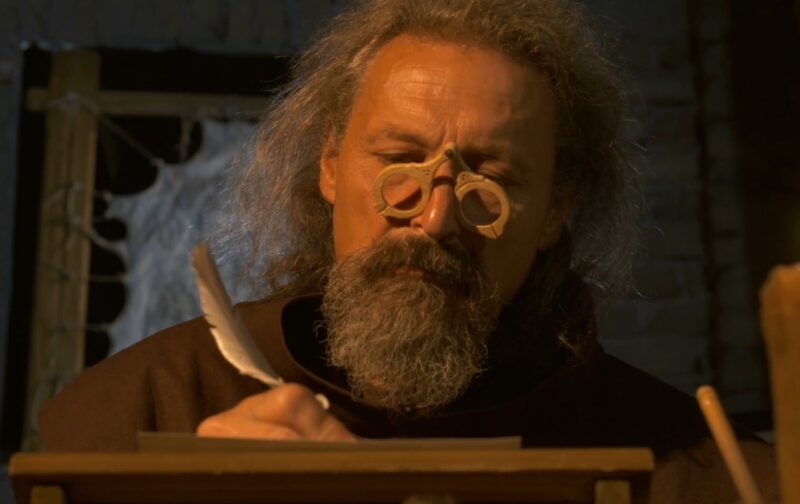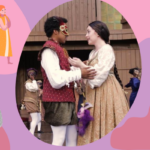William Shakespeare, the prolific playwright and poet of the Elizabethan era left an indelible mark on the world of literature. His plays and sonnets have been studied, performed, and admired for centuries, but there is a lesser-known story that has always piqued the curiosity of scholars and enthusiasts alike: what did Shakespeare leave his wife in his will?
His wife, Anne Hathaway, was a key figure in his life. They married in 1582 when he was just 18 years old and she was 26. Together, they had three children: Susanna, Hamnet, and Judith. Despite their long marriage, the relationship between the couple remains shrouded in mystery.
This article will delve into the fascinating details of Shakespeare’s will and the provisions he made for his wife. We will also explore the historical context in which the will was written, discuss prevailing theories and interpretations, and provide a comprehensive understanding of this intriguing aspect of Bard’s life.
The Last Will and Testament of William Shakespeare

William Shakespeare’s will was drafted on March 25, 1616, and he passed away just a month later, on April 23, 1616. The will, comprising three pages, is preserved in the National Archives in London.
At first glance, the will appears to be a fairly standard legal document of the time, detailing the division of Shakespeare’s estate and possessions among his family, friends, and associates. However, a closer examination reveals subtle nuances and intriguing bequests that have piqued the interest of historians and scholars.
The Bequest to Anne Hathaway
In his will, Shakespeare famously left his wife, Anne Hathaway, his “second-best bed with the furniture.” This seemingly odd bequest has fueled speculation and debate for centuries.
To the modern reader, leaving a “second-best bed” to one’s spouse might seem like an insult. However, it is essential to understand the historical context and the significance of this bequest.
In Elizabethan times, the “best bed” was typically reserved for guests and was a symbol of wealth and hospitality. The “second-best bed” was usually the marital bed used by the husband and wife. In this context, Shakespeare’s bequest of the second-best bed to Anne was not a slight but rather a poignant and intimate gesture.
While the bequest of the second-best bed is the most famous and widely-discussed aspect of Shakespeare’s will, it is not the only provision he made for Anne. As a married woman in 17th-century England, Anne would have been entitled to a “widow’s third,” or one-third of her husband’s estate, for her maintenance during her lifetime.
However, Shakespeare’s will does not explicitly mention this entitlement. Some scholars argue that the omission of the widow’s third was intentional, while others believe it was simply a legal oversight. The true intention behind this omission remains open to interpretation.
Other Bequests and Provisions in Shakespeare’s Will
Aside from the bequest to Anne Hathaway, Shakespeare’s will also contains various other provisions for his family and associates. Some of the most notable bequests include:
- To his daughter Susanna, Shakespeare left the bulk of his estate, including his properties in Stratford-upon-Avon and London. Susanna was married to Dr. John Hall, a respected physician, and their descendants carried on Shakespeare’s legacy.
- To his younger daughter Judith, he bequeathed £300, with specific conditions attached. Additionally, he left her a silver bowl, which was a valuable and symbolic item.
- To his sister Joan, Shakespeare granted a life interest in the family’s Henley Street house, ensuring her financial security for the rest of her life. Additionally, he bequeathed her £20 and his “wearing apparel.”
- To his fellow actors Richard Burbage, John Heminges, and Henry Condell, Shakespeare left money to “buy them rings.” These actors were members of the King’s Men, the acting company for which Shakespeare wrote and performed.
- To his godson William Walker, he bequeathed the sum of 20 shillings.
- Various other bequests were made to friends, neighbors, and distant relatives, demonstrating Shakespeare’s extensive social network and his desire to provide for those he cared about.
Prevailing Theories and Interpretations

The bequests in Shakespeare’s will have fueled numerous theories and interpretations about the nature of his relationship with Anne Hathaway and his intentions toward his family. Some of the most widely-discussed theories include:
The Bed Bequest as an Intimate Gesture
As mentioned earlier, many scholars believe that the bequest for the second-best bed was a touching and symbolic gesture, representing the couple’s shared marital life. This theory posits that the bed was a meaningful and personal item that held emotional value for both Shakespeare and Anne.
The Bed Bequest as a Legal Necessity
Other scholars argue that the bed bequest was purely a legal necessity to ensure Anne’s entitlement to a portion of her husband’s estate. This theory suggests that the bequest was not intended to carry any deeper emotional or symbolic meaning.
The Omission of the Widow’s Third
The absence of a specific provision for Anne’s widow’s third has led to various interpretations. Some believe that the omission was intentional and indicated Shakespeare’s wish to limit Anne’s share of his estate. Others argue that it was an oversight, as the widow’s third was a legal entitlement that Anne would have received regardless.
The Relationship between Shakespeare and Anne
The provisions of Shakespeare’s will, combined with the scant information available about their life together, have led to divergent views on the nature of Shakespeare’s relationship with his wife. Some historians argue that the couple had a strained or distant relationship, while others believe that they shared a close and loving bond.
For those interested in Shakespearean theater, there are a number of excellent festivals in the United States to check out, including some highlighted on our website.
The Enigma of Shakespeare’s Will
The question of what Shakespeare left his wife in his will has captivated historians, scholars, and literature enthusiasts for centuries. The bequest of the second-best bed and the other provisions of the will continue to inspire debate and speculation, revealing much about the social and cultural norms of the Elizabethan era.
Despite the ongoing debates and interpretations, one thing is clear: the contents of Shakespeare will offer us a fascinating window into the life of a literary genius and the world in which he lived. The enigmatic provisions of his will are a testament to the enduring legacy of the Bard and the fascination that surrounds every aspect of his life.







